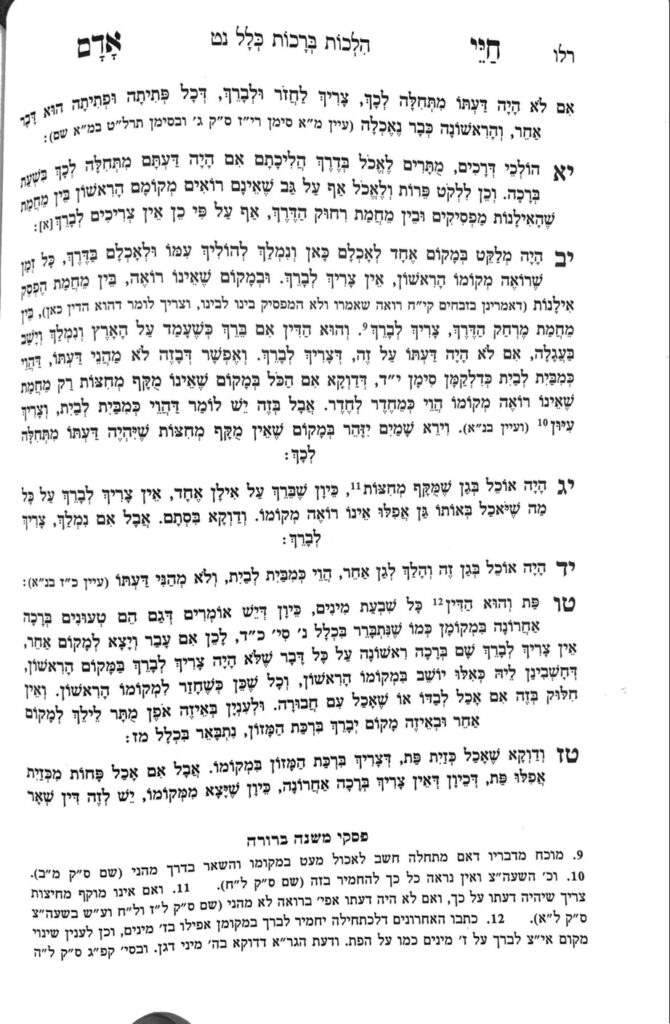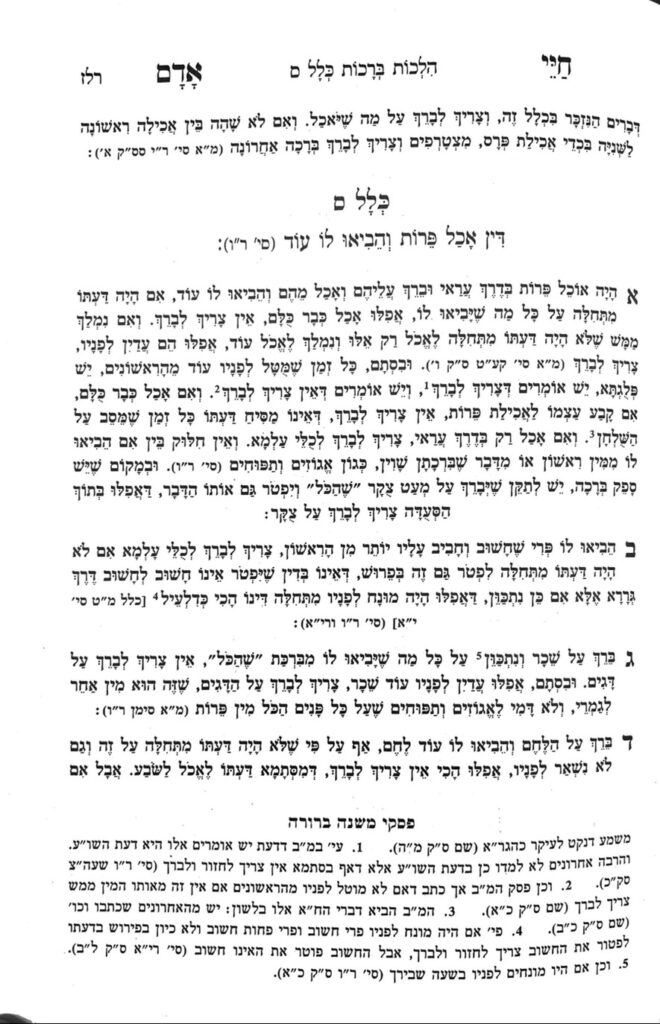We are starting siman 16 and 17. We will return to discuss situations where it is muttar lechatchilla to move to another place later. First, we will further discuss some halachos regarding bracha achrona.
We have learned that a shinui makom does not affect the k’vius created by bread or any of the shivas haminim. One must return to their original place to recite bracha achrona, and, therefore, one does not make a new bracha rishona if they go to a different makom. The Chayei Adam points out that the halacha is dependent on whether one ate a kezayis in their original place. If they ate less than a kezayis, since there is no need for a bracha achrona, there is nothing compelling the person to return to their original makom. Therefore, there is no reason to exempt them from a new bracha rishona in their second makom.
We see that, according to the Chayei Adam, this halacha of returning to one’s original makom to recite bracha achrona is dependent on practical considerations, and is not just a blanket obligation from Chazal. Therefore, the Chayei Adam can be extended to two other scenarios. First, if one realizes that by the time they will return to their original makom, it will be too late to recite bracha achrona, they should recite bracha achrona in their current makom. Correspondingly, if they wish to continue eating in the original makom, they would require a new bracha rishona.
Another application is when one is compelled to return to their original makom, such as when one works as a waiter and begins eating in the hall, but keeps moving between the hall and another makom. Since they are compelled to return to their original makom, the argument can be made that going to other places is not considered a shinui makom. This case is not clearly discussed in halacha, but Rav Moshe discusses it in a teshuva and concludes that one would not need to recite a new bracha rishona. However, Rav Moshe is the only posek who paskens this way, so one should try to avoid it.
If one ate less than a kezayis in one makom, and in a second makom ate an amount which could combine with the first makom to a kezayis, the Chayei Adam writes that if one ate the entire kezayis within a k’dei achilas pras (four minutes), they combine to require a bracha achrona.
Summary
- If one is eating bread or any mezonos (with the exception of rice), they do not make a new bracha rishona if they effect a shinui makom, provided they ate a kezayis with a k’dei achilas pras in one makom.
- If one will not be able to return to their original makom to recite bracha achrona within the proper amount of time, they should recite bracha achrona in their current makom.
- In such a situation, if one wishes to eat, they will need a new bracha rishona, even though they ate bread or mezonos.
- If one is compelled to return to their original makom, Rav Moshe holds that one would not need to recite a new bracha rishona, but one should try to avoid the situation.
- If one eats a kezayis in multiple mekomos, as long as it is consumed within a k’dei achilas pras, they combine to require a bracha achrona.




